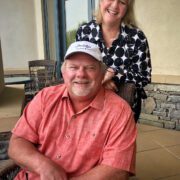The deeper I got into Greg McKeown’s book “Essentialism: The Disciplined Pursuit of Less,” the more I liked it. The book acts as an informative guide to living a deliberate life where we are in control of our choices and actions. It sounds like a no-brainer, but how many of us really achieve that state?
Focusing on what is essential isn’t a new idea — McKeown starts his book with a quote from Lin Yutang, a 20th century Chinese philosopher and writer, who said, “The wisdom of life consists in the elimination of non-essentials.” What sets this book apart is McKeown’s ability to piece together a whole new way of thinking and living. He proposes a way of life built on essentialism, and he calls himself an Essentialist.
Much of the Essentialist philosophy involves questioning everything and taking time to pause before taking any action.
McKeown explains that it’s a daily practice and that, like other undertakings, the habits
of an Essentialist become natural over time.
At the core of the Essentialist practice is a question: “Am I investing in the right activities?” Constantly pausing to check in with your goals and values, or your “essential intent,” allows you to choose wisely and make the highest level of contributions to your family and employer.
Here are some traits of an Essentialist: He doesn’t take on all good opportunities that come his way; instead, he holds out for great ones. She makes trade-offs, changing her perspective from thinking about what she has to give up to a focus on what she wants to “go big on.” He takes time to pause, reflect and choose — in other words, he’s discerning.
McKeown’s writing style is conversational, and the book is easy to read. The London-born, Stanford-educated author does a good job of presenting his ideas along with references to back them up. The Notes section at the end is a treasure trove of materials — including articles, interviews and books — to follow up on.
Back to being discerning. McKeown wants us to acknowledge that not everything is important. Really, most things are not. Having to decide and make trade-offs in life is empowering, not negative. And if you have trouble saying no, he has a helpful list of ways to do so with grace.
McKeown co-created a class at Stanford’s design school called “Designing Life, Essentially.” It introduces deliberate habits and exercises for students, so they can immerse themselves in Essentialist practices. While the book doesn’t have specific exercises from the class, a quick check online results in many links to webinars and articles. They look like fantastic resources.
When was the last time you sat down just to think? Using the power of our minds can lead to breakthroughs and innovations, but we must deliberately create a space to focus and concentrate. McKeown gives many examples of business leaders who embrace this practice. If you think you don’t have time, think of Bill Gates and the week he takes off every year to read and think. If he can do it, we probably can, too.
Essentialists are observers and listeners. They connect dots to see trends. McKeown advocates for keeping a journal — he wants us all to become journalists of our own lives. Journaling helps you “find the lead,” to use a J-school term. Distilling information while also listening and hearing what isn’t said — reading between the lines — are tools that help us realize what is truly important.
McKeown advises readers to review and reflect on their journals every 90 days. This helps identify and then focus on patterns and trends. Look for the lead in your days, weeks and life. If you don’t like what the headline says about you, you have the power to change it.
McKeown refers to a German saying a few times that means “less but better.” The daily practices of thoughtfully exploring our options, constantly editing and eliminating what isn’t important and executing well all add up to a life lived as an Essentialist: someone who lives life “by design, not by default.”
***


